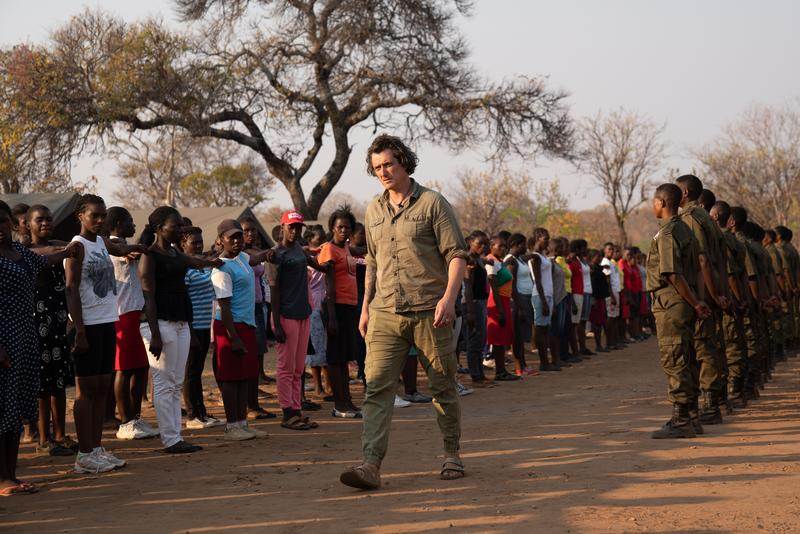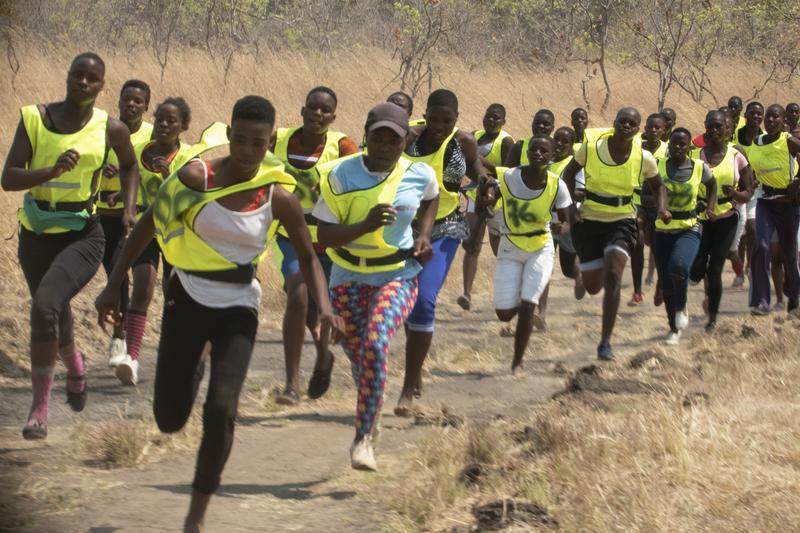The Future is Female: How an All-Women Anti-Poaching Ranger Team is Changing a Whole Community
There was a special presentation at the virtual AFI Docs Film Festival this weekend to celebrate the National Geographic short film, Akashinga: The Brave Ones. This James Cameron produced short tells the story of an all-female anti-poaching team of rangers in Zimbabwe and the opportunities it presents for some of the country’s most oppressed citizens. Joining the virtual panel were the organization’s founder, Damien Mander, and one of the rangers, Nyaradzo Hoto.
“My history was working with special operations,” Iraq War veteran Damien Mander explained about his work before joining anti-poaching forces. “Being part of a system that obliterated a country and a culture. Coming across and getting involved with conservation in what was becoming an increasingly militarized operation.” When he joined the initiative, he saw the same mistakes made in Iraq being applied to the approach to saving animals. “Bigger fences and more guns are not going to solve the conservation problems. It’s going to need a conversation.”
Damien Mander knew that if he could get the entire community involved, they could make a real impact. One scene in the film even shows the rangers responding to a community tip, doing a raid on a private residence of a suspected poacher. Before his founding of the Akashinga troop, women weren’t allowed to be rangers. Nyaradzo Hoto shared how much this opportunity has changed her life. “From this program, it has empowered women. And also, since the program, we have comprised of disadvantaged women… They have been through hard times and through our marriages and from that we have risen from the dust… We couldn’t have believed before we could make it as conservation rangers.”
Haunted by his war past, Damien shared his hope for the future. “The biggest thing I want in life is to be able to work so people like me are no longer needed to protect the natural world…. For me, the biggest reward is just seeing the impact these women have made.” In the decade prior to Akashinga’s founding, there was a 700% increase in armed conflict in Africa. Since founding the program, and throwing out the military mentality, Damien has learned a lot from the female rangers. “For me, I’ve just very much become the student in just sitting back and watching this model unfold.”
“They’re working in one of the harshest locations on the planet, one of the most remote locations doing one of the most demanding jobs… and they’re thriving. They’re doing it in such a manner that makes me so proud,” Damien stated before sharing some incredible facts. Since founding Akashinga, the rangers have made over 100 arrests and the region has seen an 80% downturn in poaching. “They’ve shifted an entire focus of the community in terms of what’s possible, this amazing way of social engineering. They’ve become rockstars in their local communities.” Boys and girls look up to the Akashinga Rangers and heroes as they drive through town. “It’s not just about going out and protecting the animals, but it’s the example they set and they really make me proud of them.”
Like something out of a Disney narrative, Damien also shared his approach to training new recruits. “When the women came to us, we didn’t say here’s a uniform, here’s a rifle, go out there and protect the area. We said what are your dreams? What do you want to do? That’s what this is about. Some of them wanted to finish high school, some wanted to go to university like Nyaradzo, some wanted to buy land. It’s not about protecting land, it’s about building communities and these women are a perfect example of that.” As for Nyaradzo Hoto, she’s about to earn her degree in wildlife conservation and Damien believes she could be president of Zimbabwe someday.
Akashinga: The Brave Ones will next be screened at the Tribeca Drive-In Film Festival and will premiere on National Geographic later this year.




